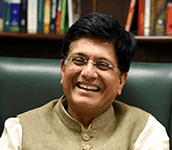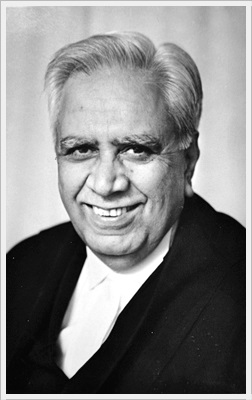April 15, 2025:
Sahil Aggarwal (Editor-in-Chief)
Justice Ram Prakash Sethi was more than a judge—he was a beacon of judicial clarity, constitutional morality, and human compassion. A towering figure in the Indian judiciary, his legacy continues to guide the legal community and inspire future generations. From humble beginnings in Jammu and Kashmir to the esteemed benches of the Supreme Court of India, Justice Sethi’s journey exemplifies the principles of integrity, fairness, and unwavering commitment to justice.
Early Life and Education
Born in Jammu and Kashmir, Justice Sethi’s formative years were deeply rooted in discipline, academic pursuit, and an insatiable curiosity for justice. He displayed early brilliance in academics, which later translated into a distinguished legal career. After completing his law degree, he began practicing law in J&K, quickly earning recognition for his sharp legal mind, clear articulation, and ethical approach.
His early legal practice focused on constitutional and criminal law, areas in which he would later leave an indelible mark. What set him apart even then was his balanced perspective—he was deeply empathetic to the plight of the underrepresented and passionate about upholding the rule of law.
A Distinguished Legal Career
Justice Sethi’s professional ascent within the Indian judiciary was characterized by remarkable integrity and legal acumen. He was appointed as a Judge of the Jammu and Kashmir High Court in 1986. His judgments reflected his deep understanding of constitutional principles and societal dynamics. He was particularly well-regarded for delivering reasoned decisions that respected both letter and spirit of the law.
He later served as the Chief Justice of the Karnataka High Court, a tenure marked by administrative reforms, promotion of judicial transparency, and protection of judicial independence. He was finally elevated to the Supreme Court of India, where he served with distinction until his retirement.
What made Justice Sethi’s career unique was not just the titles he held, but the grace and dignity with which he exercised those responsibilities. His courtroom was known for being disciplined yet welcoming, particularly for young advocates trying to find their footing.
Championing Criminal Justice Reform
Among the various facets of his jurisprudence, Justice Sethi’s contribution to criminal justice reform was perhaps the most impactful. In several landmark rulings, he highlighted systemic challenges such as prolonged pre-trial detentions, delays in investigations, and the rights of the accused.
In the landmark case Raj Kumar Jain v. Union of India [(2002) 2 SCC 329], Justice Sethi’s opinion emphasized the importance of procedural fairness and the need for expeditious trials, stating, “Justice delayed is not merely justice denied, but an erosion of the very rule of law.”
He also stressed the importance of a humane and rehabilitative prison system. He believed that incarceration should be an opportunity for reform, not just punishment. In his rulings, he often invoked constitutional morality as a lens through which judicial discretion should be exercised—balancing the rights of the accused with the expectations of justice for victims.
Judicial Philosophy and Ethics
Justice Sethi was known for upholding the independence of the judiciary. He famously maintained that a judge must remain apolitical, and justice should be blind not only to caste, creed, and gender but also to pressure and prejudice. He often warned against the politicization of Judiciary and spoke on forums urging judicial officers to rise above external influence.
His deep respect for constitutionalism and human dignity could be seen in how he interpreted the Constitution—not as a rigid document, but as a living instrument of justice. His judgments balanced technical interpretation with moral insight, always keeping the human impact of law at the forefront.
Notable Judgments
Justice Sethi delivered several impactful judgments during his tenure, touching on criminal law, constitutional interpretation, and administrative reforms. Some of his notable judgments include:
- State of Karnataka vs. Kempaiah [(1998) 6 SCC 103]: He reinforced the principle that justice must be done regardless of socio-political standing and stressed accountability of the state in ensuring a fair trial.
- Narmada Bachao Andolan v. Union of India (2000): While not the author of the final opinion, Justice Sethi’s concurring views were frequently cited for their clarity in balancing environmental concerns with development goals.
- Union of India v. B.R. Sharma [(2002) 5 SCC 34]: His dissenting opinion in this case emphasized the importance of judicial independence, drawing from global best practices and Indian constitutional values.
These cases and many others continue to be referenced in legal education, public discourse, and evolving jurisprudence.
A Voice Beyond the Bench
Even after his retirement, Justice Sethi continued contributing to the legal fraternity as a speaker, columnist, and mentor. He was frequently invited to deliver lectures on constitutional values, ethics in public life, and the evolving nature of Indian democracy. He was also actively involved in legal reform movements, particularly those seeking greater transparency and accountability in public institutions.
In seminars and law schools, his voice remained influential—especially when addressing the youth. His writings, often published in national newspapers and legal journals, tackled themes ranging from judicial accountability to secularism and minority rights.
Personal Values and Public Image
Justice Sethi’s legacy is also rooted in his conduct outside the courtroom. Known for his humility and approachability, he was deeply respected by peers and juniors alike. He carried the aura of a scholar yet was grounded in everyday realities of the people.
Many remember his ability to balance authority with empathy. He never let his status define his relationships. Whether it was a junior court clerk or a senior advocate, he interacted with the same respect and attentiveness—a quality that endeared him to many.
Tributes and Ongoing Legacy
Each year, legal institutions across Jammu and Kashmir commemorate Justice Sethi’s birth anniversary. From panel discussions to essay competitions in law schools, his legacy continues to inspire. His judgments remain part of law curricula in universities like NALSAR, National Law School of India University (NLSIU), and J&K’s own institutions.
Publications like LiveLaw, Bar & Bench, and The Hindu have acknowledged Justice Sethi’s contribution to building a robust, ethical, and citizen-centric judiciary. In recent years, several of his opinions have also gained renewed attention in discussions around judicial reforms and access to justice.
His legacy finds particular resonance today as the Indian judiciary grapples with increasing caseloads and questions of independence. Justice Sethi’s body of work offers a model of balanced jurisprudence—firm on law, yet compassionate in spirit.
Conclusion: A Life of Purpose and Principle
Justice Ram Prakash Sethi’s life and work offer an enduring testament to what the Indian judiciary can represent when guided by integrity, intellect, and compassion. His judicial philosophy, commitment to reform, and lifelong devotion to constitutional principles continue to serve as a moral compass for the legal community.
He remains not just a revered figure in Indian law but a symbol of what it truly means to be in the service of justice. In every courtroom that invokes his decisions and in every student who studies his legacy, Justice Sethi lives on—as a jurist, a reformer, and above all, a true servant of the people.



















